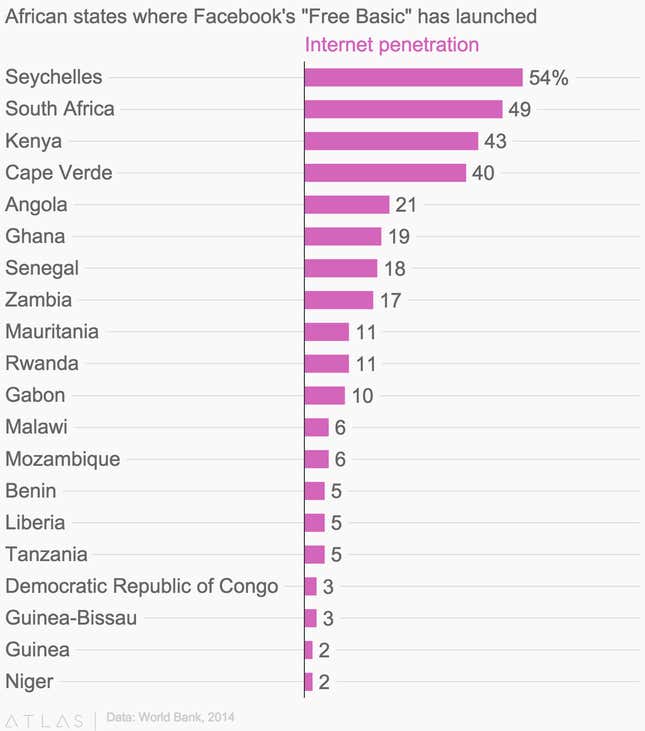Hello, Quartz Index readers!
It hasn’t been a good year so far for internet freedom in Africa. Last week, Mali joined a growing list of countries on the continent that have imposed a social media blackout to quell dissent. Demonstrators protesting the detention of an outspoken radio host in Bamako were blocked from using Facebook and Twitter.
With internet penetration at only 21%, Africa is the least connected region in the world and the focus of efforts like Facebook’s Internet.org, a campaign that works with local mobile operators to give users access to a selection of websites without data charges. So far, there has been no regulatory resistance in the more than 20 African countries where the service is offered.

Still, social media has been instrumental in demonstrations from Ethiopia to Zimbabwe. According to some estimates, internet users in Africa post about politics on social media four times as much as their peers in the United States or the United Kingdom.
No wonder authorities are increasingly blocking Facebook, along with WhatsApp, and Twitter, during politically sensitive times. In a year where at least a dozen African countries are holding parliamentary or presidential elections we can expect to see this happen more often.—Lily Kuo
[qz-index-heading tag=434458653][/qz-index-heading]
[qz-index-article id=759599][/qz-index-article]
[qz-index-heading tag=434458654][/qz-index-heading]
[qz-index-article id=762082][/qz-index-article]
[qz-index-heading tag=434458656][/qz-index-heading]
[qz-index-article id=765258][/qz-index-article]
[qz-index-heading tag=434458657][/qz-index-heading]
[qz-index-article id=767175][/qz-index-article]
[qz-index-heading tag=434458658][/qz-index-heading]
[qz-index-article id=766602][/qz-index-article]
[qz-index-heading tag=434458655][/qz-index-heading]
[qz-index-article id=762104][/qz-index-article]